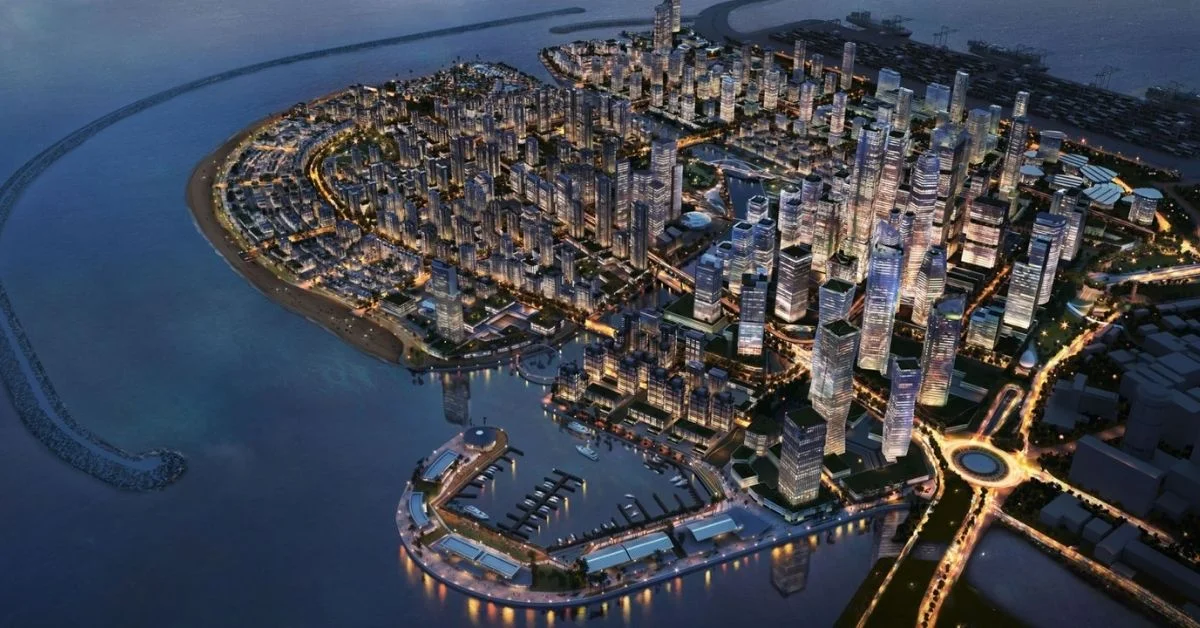After 3 decades of a devastating civil war, Sri Lanka has managed to uplift its economy. It has experimented with all means and medium to bring in investment and capital. One such experiment took place in Sri Lanka’s first Special Economic Zone(SEZ). The SEZ is located on the coast of Colombo.
The most beneficial project for Sri Lanka is the SEZ project. It will provide over 200,000 jobs with a contribution of 1% growth in total Sri Lankan GDP. The growth will continue for the coming 25 years. Econsult Asia has named SEZ’s Port City a ‘World-class city for South Asia’.
This Special Economic Zone experiment is beneficial for several countries. The Shanghai Special Economic Zone is the most notable, established in the early ’80s. It transformed Shanghai into a global centre for trading.
SEZs with their own regulatory systems and economic rules are nothing different. Their system is designed to reduce manufacturing costs and make doing business easier. The overall goal is to acquire modern technologies, increasing local company competition, and boosting foreign currency.
Though the concept of a Special Economic Zone is contrary to that of the government’s economic policy, the SEZ will play a major role in the inflow of capital as well as, several technologies and equipment required to transition into the future.
SEZ and its Benefits to Sri Lanka
The reason this city is named ‘World-class’ is due to the facilitation it will provide once it is completed. It will be providing residence to over 250,000 people alongside a ‘world-class’ living lifestyle that will include commodities, transportation, basic life necessities and most of all, a global market to trade upon.
Moreover, the SEZ will be able to provide over 200,000 jobs. This figure can eradicate half of the unemployed population of Sri Lanka. Similarly, over the course of 20 years, Port City will generate approximately US$ 2.8 billion in duties and taxes. The government could raise up to US$ 0.8 billion a year from taxation and fees after it is fully operational. This will greatly assist the government in its economic datasheet.
As mentioned in Section 56 of the Port City Economic Commission Bill, the SEZ would include financial instruments such as \”debentures, securities, securities, funds, bonds, derivatives like futures and options,\”. The SEZ would need to set up advanced IT and technical systems in the port city to facilitate all of this. This will be beneficial for local producers of such technology as government can avoid extra charges to import the same technology.
Furthermore, the city is deemed to be a green city with low carbon emission. Such moves will put Sri Lanka’s port city on the world map in comparison and competition to Singapore’s green city policies. The city will also be the testing point for the digital flow of capital, transaction and payments.
Lastly, according to calculations, the port city will increase the projected GDP from $360.5 billion to $439billion in 2045. This increase will also ensure that Sri Lanka decreases its dependency on IMF as it will free Colombo from foreign dictations and bring in the capital on its own.


![Ukrainian and Russian flags with soldier silhouettes representing ongoing conflict. [Image via Atlantic Council].](https://southasiatimes.org/wp-content/uploads/2026/02/2022-02-09T000000Z_1319661209_MT1NURPHO000HXCNME_RTRMADP_3_UKRAINE-CONFLICT-STOCK-PICTURES-scaled-e1661353077377.jpg)



![Truck traveling along the Makran Coastal Highway in Balochistan, with rugged cliffs and the Arabian Sea coastline in the background [Image via Getty Images].](https://southasiatimes.org/wp-content/uploads/2026/02/Balochistan-2.webp)